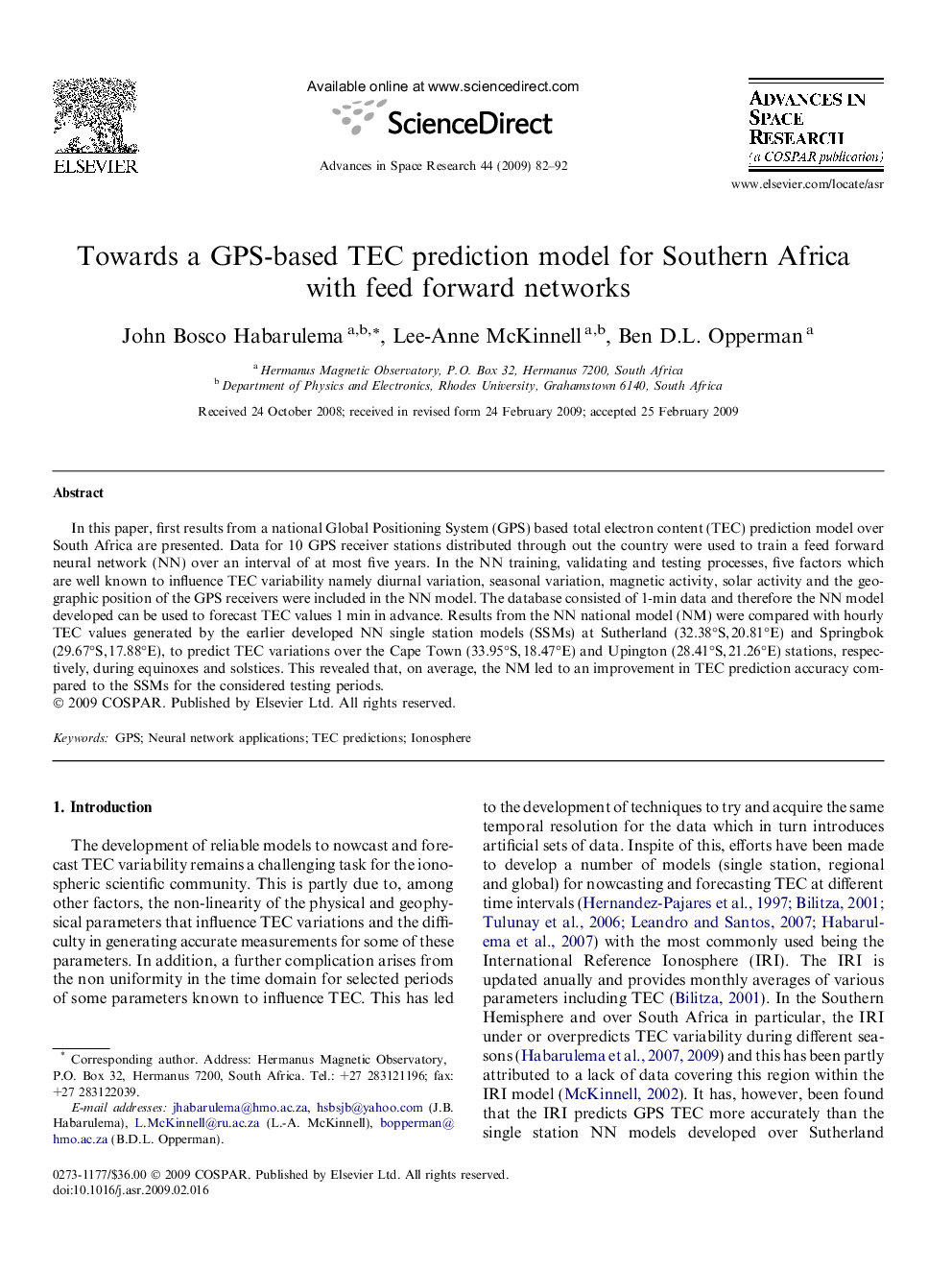| Article ID | Journal | Published Year | Pages | File Type |
|---|---|---|---|---|
| 1766677 | Advances in Space Research | 2009 | 11 Pages |
In this paper, first results from a national Global Positioning System (GPS) based total electron content (TEC) prediction model over South Africa are presented. Data for 10 GPS receiver stations distributed through out the country were used to train a feed forward neural network (NN) over an interval of at most five years. In the NN training, validating and testing processes, five factors which are well known to influence TEC variability namely diurnal variation, seasonal variation, magnetic activity, solar activity and the geographic position of the GPS receivers were included in the NN model. The database consisted of 1-min data and therefore the NN model developed can be used to forecast TEC values 1 min in advance. Results from the NN national model (NM) were compared with hourly TEC values generated by the earlier developed NN single station models (SSMs) at Sutherland (32.38°S, 20.81°E) and Springbok (29.67°S, 17.88°E), to predict TEC variations over the Cape Town (33.95°S, 18.47°E) and Upington (28.41°S, 21.26°E) stations, respectively, during equinoxes and solstices. This revealed that, on average, the NM led to an improvement in TEC prediction accuracy compared to the SSMs for the considered testing periods.
